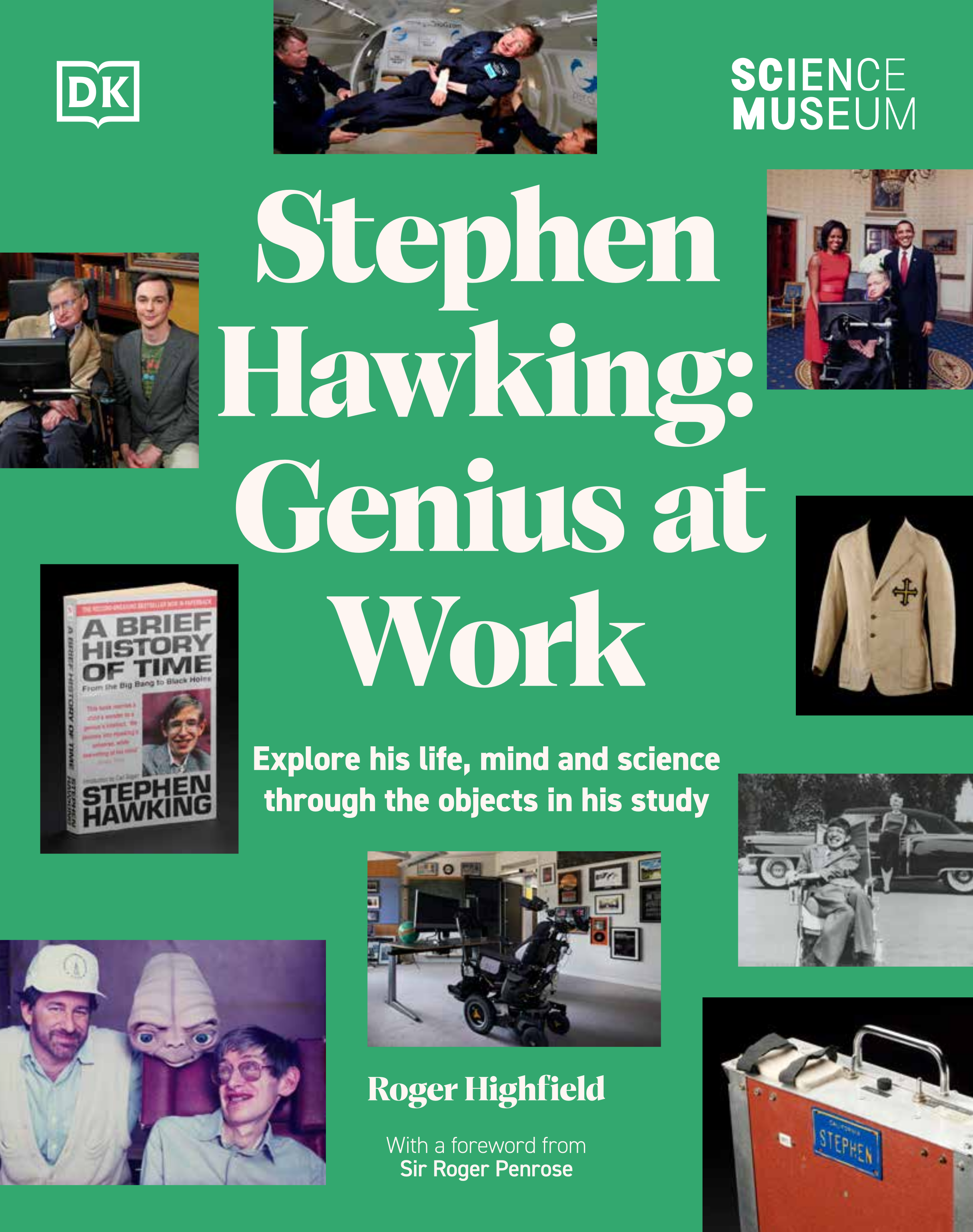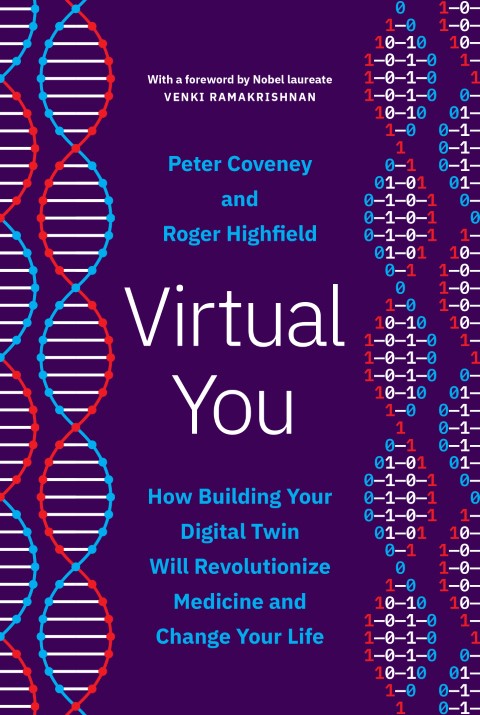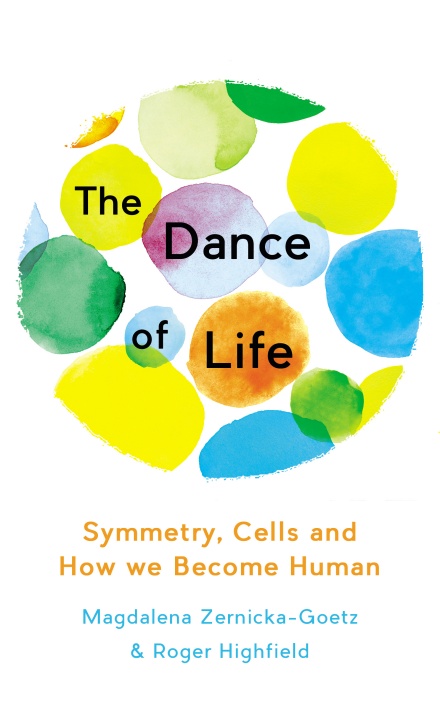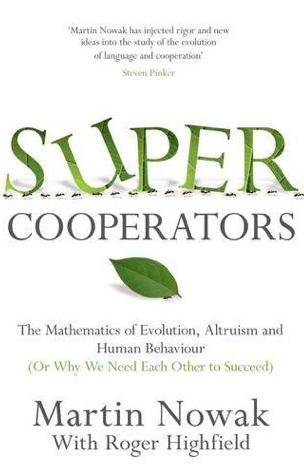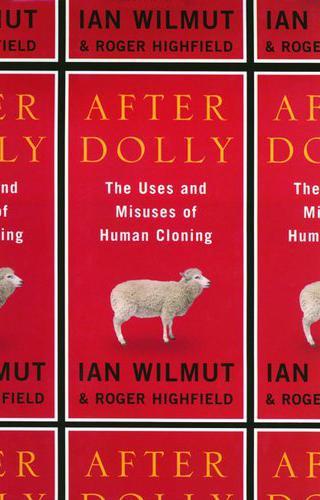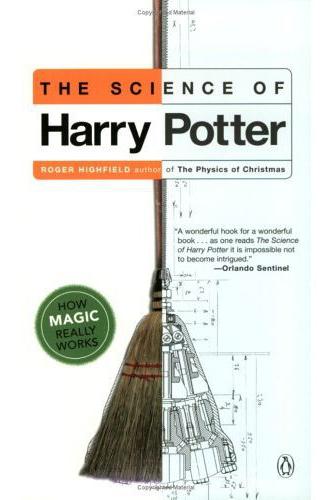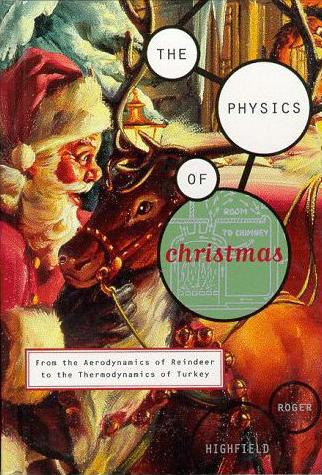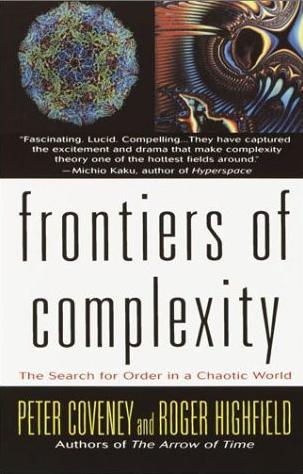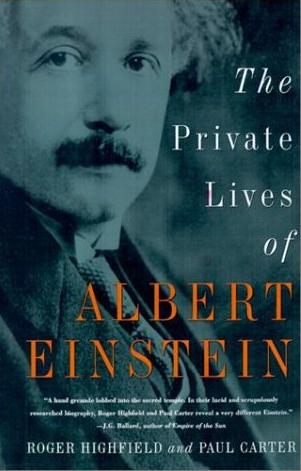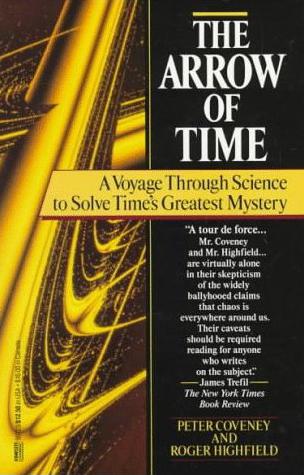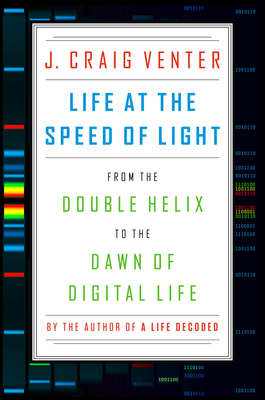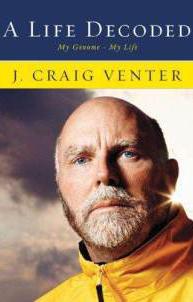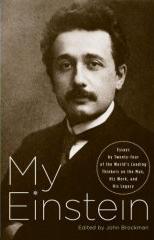RH
Roger
Highfield
Roger Highfield: 80 per cent executive at the Science Museum Group / 20 per cent author, journalist and broadcaster.
Views expressed here are 100 per cent his own.
socials
books
My new book
STEPHEN HAWKING, GENIUS AT WORK
STEPHEN HAWKING, GENIUS AT WORK: Explore His Life, Mind and Science Through the Objects in His Study
Roger Highfield
Foreword by Sir Roger Penrose
Roger Highfield
Foreword by Sir Roger Penrose
"A highly entertaining and informative Stephen Hawking cornucopia."
Brian Clegg
"In this unique book, Roger Highfield's clear expositions of Stephen Hawking's ideas are supplemented by fascinating illustrations that convey how he lived and worked. It's a beautifully-presented celebration of Stephen's amazing life - how his insights and discoveries were achieved against heavy odds."
Martin Rees, Baron Rees of Ludlow and Astronomer Royal
"This sumptuously illustrated celebration of Hawking's life captures perfectly its depth and breadth."
Marcus Chown, author, Afterglow of Creation
"Roger Highfield's book is unique in the sense that the book demonstrates the real character and legacy of Stephen Hawking using various objects."
Kanan Purkayastha, Daily Sun
"Gorgeous book!"
Robyn Williams, ABC
Brian Clegg
"In this unique book, Roger Highfield's clear expositions of Stephen Hawking's ideas are supplemented by fascinating illustrations that convey how he lived and worked. It's a beautifully-presented celebration of Stephen's amazing life - how his insights and discoveries were achieved against heavy odds."
Martin Rees, Baron Rees of Ludlow and Astronomer Royal
"This sumptuously illustrated celebration of Hawking's life captures perfectly its depth and breadth."
Marcus Chown, author, Afterglow of Creation
"Roger Highfield's book is unique in the sense that the book demonstrates the real character and legacy of Stephen Hawking using various objects."
Kanan Purkayastha, Daily Sun
"Gorgeous book!"
Robyn Williams, ABC
Earlier books
Virtual You
Virtual You: How Building Your Digital Twin Will Revolutionize Medicine and Change Your Life
Peter Coveney and Roger Highfield
Foreword by Venki Ramakrishnan
Peter Coveney and Roger Highfield
Foreword by Venki Ramakrishnan
One of the Financial Times "best books of 2023"
"Virtual You is the most comprehensive and comprehensible account so far of the way in which the revolution in computing and data is starting to transform human biology and medicine."
Financial Times
"Virtual You's scope is as epic as its vision, taking us through medical history from Vesalius to Venter, and from the Antikythera mechanism to supercomputers and beyond. This means the concepts come at you thick and fast, although as a non-mathematician, I found the explanations refreshingly clear."
New Scientist
"Immensely thought provoking... One of the best things about 'Virtual You' is that if you ever doubted on what scale of complexity the digitally twinning of humans operates, you'll doubt no more."
E&T
"What appears to be science fiction is, step by step, becoming reality... In regard to human beings, [digital twins] will permit us to explore and better understand humanity, in its entirety as well as individually, in all its uniqueness."
L'Express
"The 'Healthcast' is part of the vision of digital twins that Peter Coveney and Roger Highfield outline in their book... The rough categories of 'sick' and 'healthy' would be obsolete; everything would be individual."
Frankfurter Allgemeine
"Virtual You is the most comprehensive and comprehensible account so far of the way in which the revolution in computing and data is starting to transform human biology and medicine."
Financial Times
"Virtual You's scope is as epic as its vision, taking us through medical history from Vesalius to Venter, and from the Antikythera mechanism to supercomputers and beyond. This means the concepts come at you thick and fast, although as a non-mathematician, I found the explanations refreshingly clear."
New Scientist
"Immensely thought provoking... One of the best things about 'Virtual You' is that if you ever doubted on what scale of complexity the digitally twinning of humans operates, you'll doubt no more."
E&T
"What appears to be science fiction is, step by step, becoming reality... In regard to human beings, [digital twins] will permit us to explore and better understand humanity, in its entirety as well as individually, in all its uniqueness."
L'Express
"The 'Healthcast' is part of the vision of digital twins that Peter Coveney and Roger Highfield outline in their book... The rough categories of 'sick' and 'healthy' would be obsolete; everything would be individual."
Frankfurter Allgemeine
The Dance of Life
Symmetry, Cells and How we Become Human
By Magdalena Zernicka-Goetz and Roger Highfield
By Magdalena Zernicka-Goetz and Roger Highfield
"How an entire human can emerge from a single cell is one of life's great mysteries. This book is a wonderful exposition of that amazingly complicated process and combines Zernicka-Goetz's research and expert perspective with the clear and engaging narrative that is a hallmark of Highfield's science writing."
Venki Ramakrishnan, president of the Royal Society and recipient of the Nobel Prize in Chemistry
"A touching, detailed portrait of a life in science. Beautifully written, it's a reminder that scientists are human and their humanity affects every part of their work"
Angela Saini, bestselling author of Inferior and Superior
"Story-telling at its very best. Together with Highfield, Zernicka-Goetz leads us through her life scientific, intertwining the exciting field of 21st biology with a joyous personal journey of discovery at the cutting edge of research"
Professor Jim Al-Khalili OBE, award-winning science communicator and broadcaster
"Few books succeed as well as this in turning a complex area of science into a compelling human story. Rarely will you read such an intimate and personal account of scientific discovery"
Evan Davis, BBC broadcaster
"Of all the biological sciences, developmental biology may be the most complicated, but Magdalena Zernicka-Goetz makes it easier in The Dance of Life. An accomplished researcher whose discoveries in this field rewrote textbooks, she offers a rich look at how humans arise from the union of two cells. In tracing her path as a woman in the male-dominated areas of embryology and developmental biology, Zernicka-Goetz takes the reader with ease through the incredibly complex dance of life that cells undertake in building a human embryo."
Emily Willingham, coauthor, The Informed Parent
"Part memoir, part mission to touch creation itself, The Dance of Life is a candid & gripping odyssey into one of the greatest microscopic scientific mysteries of all - the cellular divisions that spawn human life"
Samira Ahmed, BBC broadcaster
"The question of how a gorgeous baby develops from an inanimate, post-coital speck has fascinated humans from the year dot. Highfield and Zernicka-Goetz illuminate this apparent miracle in an entertaining narrative full of scientific insights, human interest and thoughtful reflection"
Graham Farmelo, winner of the Costa Biography Prize and official biographer of Stephen Hawking
"An in-depth journey through the world of the research embryologist... The story has a memoir-like atmosphere, especially when Zernicka-Goetz turns to episodes of her life. But she is never far from the science... Meaty and entertaining"
Kirkus Reviews
"Illuminating... Zernicka-Goetz and Highfield's informative professional memoir has much to engage readers"
Publishers Weekly
One of Prospect's Best Books of 2021
![[the dance of life US cover]](./views/frontend/images/the_dance_of_life_alice_roberts.jpg)
Venki Ramakrishnan, president of the Royal Society and recipient of the Nobel Prize in Chemistry
"A touching, detailed portrait of a life in science. Beautifully written, it's a reminder that scientists are human and their humanity affects every part of their work"
Angela Saini, bestselling author of Inferior and Superior
"Story-telling at its very best. Together with Highfield, Zernicka-Goetz leads us through her life scientific, intertwining the exciting field of 21st biology with a joyous personal journey of discovery at the cutting edge of research"
Professor Jim Al-Khalili OBE, award-winning science communicator and broadcaster
"Few books succeed as well as this in turning a complex area of science into a compelling human story. Rarely will you read such an intimate and personal account of scientific discovery"
Evan Davis, BBC broadcaster
"Of all the biological sciences, developmental biology may be the most complicated, but Magdalena Zernicka-Goetz makes it easier in The Dance of Life. An accomplished researcher whose discoveries in this field rewrote textbooks, she offers a rich look at how humans arise from the union of two cells. In tracing her path as a woman in the male-dominated areas of embryology and developmental biology, Zernicka-Goetz takes the reader with ease through the incredibly complex dance of life that cells undertake in building a human embryo."
Emily Willingham, coauthor, The Informed Parent
"Part memoir, part mission to touch creation itself, The Dance of Life is a candid & gripping odyssey into one of the greatest microscopic scientific mysteries of all - the cellular divisions that spawn human life"
Samira Ahmed, BBC broadcaster
"The question of how a gorgeous baby develops from an inanimate, post-coital speck has fascinated humans from the year dot. Highfield and Zernicka-Goetz illuminate this apparent miracle in an entertaining narrative full of scientific insights, human interest and thoughtful reflection"
Graham Farmelo, winner of the Costa Biography Prize and official biographer of Stephen Hawking
"An in-depth journey through the world of the research embryologist... The story has a memoir-like atmosphere, especially when Zernicka-Goetz turns to episodes of her life. But she is never far from the science... Meaty and entertaining"
Kirkus Reviews
"Illuminating... Zernicka-Goetz and Highfield's informative professional memoir has much to engage readers"
Publishers Weekly
One of Prospect's Best Books of 2021
![[the dance of life US cover]](./views/frontend/images/the_dance_of_life_alice_roberts.jpg)
Supercooperators: The Mathematics of Evolution, Altruism and Human Behaviour
Or Why We Need Each Other to Succeed
By Roger Highfield and Martin Nowak
By Roger Highfield and Martin Nowak
Read the reviews in Nature and the New York Times. Find out why the UK Science Minister thinks politicians can draw inspiration from our 'excellent' book, and also why it is so controversial.
"Martin Nowak is one of the most creative scientists of our time, and Roger Highfield is a superb science writer. Their insights into the mystery of cooperation will change the way you think about everything. If you're looking for the next Big Idea book, you've just found it."
Steven Strogatz, Schurman Professor of Applied Mathematics, Cornell University, and New York Times contributor
"Supercooperators looks beyond The Selfish Gene and invites us to think afresh about evolution. Contrary to the simplistic idea that selfishness is the only strategy for survival, the brilliant Martin Nowak proves that cooperation is also vitally important. This rich and rewarding book teems with new ideas and insights, which co-author Roger Highfield makes wonderfully lucid and entertaining."
Graham Farmelo, author of The Strangest Man, winner of the Costa Biography Award
"A fantastic journey into the science of cooperation, with important implications for both individuals and society alike."
Richard Wiseman, author of Paranormality, 59 Seconds and Quirkology
"Martin Nowak is regarded as the foremost mathematical theorist working in evolutionary biology. His contributions on cooperation and altruism, here augmented by the expertise of Roger Highfield, fall in one of the most important domains of present-day biology."
Edward O. Wilson, author of Consilience and Pellegrino University Research Professor, Harvard University
"Roger Highfield deftly weaves together a personal and informative account of the research of Harvard's Martin Nowak to reveal five mechanisms that rule human behaviour. On the way, they explore the origins of life, language, cancer and much more, and highlight how evolution can lead to cooperation as well as competition."
Martin Rees, Astronomer Royal and recent President of the Royal Society
"A panoramic view of the role of cooperation in the evolution... [A] sweeping survey... Nowak is a mathematical biologist, and his enthusiasm for numbers is extremely useful in his discussions of evolutionary theory. However, thankfully for the mathematically disinclined, there is little hard math here... A fleshed-out, persuasive chronicle of the bright side-collective enterprise-of the evolutionary road."
Kirkus Reviews
"Martin Nowak is one of the most creative scientists of our time, and Roger Highfield is a superb science writer. Their insights into the mystery of cooperation will change the way you think about everything. If you're looking for the next Big Idea book, you've just found it."
Steven Strogatz, Schurman Professor of Applied Mathematics, Cornell University, and New York Times contributor
"Supercooperators looks beyond The Selfish Gene and invites us to think afresh about evolution. Contrary to the simplistic idea that selfishness is the only strategy for survival, the brilliant Martin Nowak proves that cooperation is also vitally important. This rich and rewarding book teems with new ideas and insights, which co-author Roger Highfield makes wonderfully lucid and entertaining."
Graham Farmelo, author of The Strangest Man, winner of the Costa Biography Award
"A fantastic journey into the science of cooperation, with important implications for both individuals and society alike."
Richard Wiseman, author of Paranormality, 59 Seconds and Quirkology
"Martin Nowak is regarded as the foremost mathematical theorist working in evolutionary biology. His contributions on cooperation and altruism, here augmented by the expertise of Roger Highfield, fall in one of the most important domains of present-day biology."
Edward O. Wilson, author of Consilience and Pellegrino University Research Professor, Harvard University
"Roger Highfield deftly weaves together a personal and informative account of the research of Harvard's Martin Nowak to reveal five mechanisms that rule human behaviour. On the way, they explore the origins of life, language, cancer and much more, and highlight how evolution can lead to cooperation as well as competition."
Martin Rees, Astronomer Royal and recent President of the Royal Society
"A panoramic view of the role of cooperation in the evolution... [A] sweeping survey... Nowak is a mathematical biologist, and his enthusiasm for numbers is extremely useful in his discussions of evolutionary theory. However, thankfully for the mathematically disinclined, there is little hard math here... A fleshed-out, persuasive chronicle of the bright side-collective enterprise-of the evolutionary road."
Kirkus Reviews
After Dolly
>
The Uses and Misuses of Human Cloning
By Roger Highfield and Sir Ian Wilmut
By Roger Highfield and Sir Ian Wilmut
After Dolly won the 2007 Tony Thistlethwaite award from the UK Medical Journalists' Association for a book on health or medical science aimed at the general reader.
"Written with Roger Highfield, the Daily Telegraph's science editor, After Dolly is pacy and extremely clear. The scientific jargon is properly explained, and there is an excellent glossary. It is worth reading, even if only to try to peer ahead in the hope of determining the outrageous fortune that will be the future of the human race."
Paul Riddell, The Scotsman
"Recommended for all science collections, as we all need to try to keep up with these complex and important issues."
Library Journal
"The how of cloning, beautifully told by optimists who believe that wise heads and good science will justify the whys."
Kirkus reviews
"The book is unusual in that it combines in one narrative a vivid firstperson scientific account with a discussion of the moral and ethical issues that have emerged, inevitably, from this research. This is unfiltered science writing without the polemical posturing often encountered when non-scientists try to interpret what scientists are doing."
Peter Pettus, New York Sun
"The book, despite its weighty concerns, avoids a moralizing tone and is exceedingly pleasant to read."
Scientific American
"In collaboration with Roger Highfield, a science journalist, Wilmut provides an extremely lucid and readable explanation of the history of cloning and biologists' ideas for the future."
Stephen Poole, Guardian
"Ably co-authored by Roger Highfield, After Dolly offers a fascinating insight into one of the most controversial yet promising areas of modern biology."
Peter Smith, Independent
"Written with Roger Highfield, the Daily Telegraph's science editor, After Dolly is pacy and extremely clear. The scientific jargon is properly explained, and there is an excellent glossary. It is worth reading, even if only to try to peer ahead in the hope of determining the outrageous fortune that will be the future of the human race."
Paul Riddell, The Scotsman
"Recommended for all science collections, as we all need to try to keep up with these complex and important issues."
Library Journal
"The how of cloning, beautifully told by optimists who believe that wise heads and good science will justify the whys."
Kirkus reviews
"The book is unusual in that it combines in one narrative a vivid firstperson scientific account with a discussion of the moral and ethical issues that have emerged, inevitably, from this research. This is unfiltered science writing without the polemical posturing often encountered when non-scientists try to interpret what scientists are doing."
Peter Pettus, New York Sun
"The book, despite its weighty concerns, avoids a moralizing tone and is exceedingly pleasant to read."
Scientific American
"In collaboration with Roger Highfield, a science journalist, Wilmut provides an extremely lucid and readable explanation of the history of cloning and biologists' ideas for the future."
Stephen Poole, Guardian
"Ably co-authored by Roger Highfield, After Dolly offers a fascinating insight into one of the most controversial yet promising areas of modern biology."
Peter Smith, Independent
The Science of Harry Potter
How Magic Really Works
"Animated by Highfield's enthusiasm for the extraordinary, The Science of Harry Potter is an enjoyably indirect survey of modern science."
Christine Kenneally, New York Times
"A wonderful hook for a wonderful book... As one reads The Science of Harry Potter it is impossible not to become intrigued."
Orlando Sentinel
"One does not need to be a fan of the Harry Potter series to enjoy this book, and with the breadth of scientific topics covered there is likely something new and fascinating for all readers."
Marc Lavine, Science
"He has interviewed the world's best Muggle scientists to identify the explanations behind everything from the Mirror of Erised to the Invisibility Cloak.... A great introduction to a whole variety of issues from game theory to evolution."
Simon Singh, Observer
Christine Kenneally, New York Times
"A wonderful hook for a wonderful book... As one reads The Science of Harry Potter it is impossible not to become intrigued."
Orlando Sentinel
"One does not need to be a fan of the Harry Potter series to enjoy this book, and with the breadth of scientific topics covered there is likely something new and fascinating for all readers."
Marc Lavine, Science
"He has interviewed the world's best Muggle scientists to identify the explanations behind everything from the Mirror of Erised to the Invisibility Cloak.... A great introduction to a whole variety of issues from game theory to evolution."
Simon Singh, Observer
The Physics of Christmas
From the Aerodynamics of Reindeer to the Thermodynamics of Turkey
Entitled "Can Reindeer Fly?" in the UK
Entitled "Can Reindeer Fly?" in the UK
"For anyone who has ever yearned to apply thermodynamics to Christmas goose, or who wonders what the star of Bethlehem was or why hot mulled wine makes you tipsier faster than a chilled Sancerre - for anyone, in short, who is curious about the science behind the season, The Physics of Christmas is just what the elves ordered."
Sharon Begley, Newsweek
"Is the book the perfect Christmas present? Pretty nearly. There is a risk that it won't reach the intended recipient if you open it yourself. Anyone receiving the book should save it for reading on Boxing Day. After all, you don't want to be accused of being antisocial on the big day, do you?"
Roy Herbert, New Scientist
"Roger Highfield's Can Reindeer Fly? is an irresistible stocking filler. From the science of the snowflake to the Virgin birth, to Santa's billion household visitation logistics, this thoroughly serious science editor has produced a hilarious romp that will delight all science buffs."
John Cornwell, The Sunday Times
"Roger Highfield's excellent book, Can Reindeer Fly? is a slew of scientific essays on the features of a traditional Christmas: snow, candles, turkey, fir trees, mulled wine and so on. He writes with pleasing gusto: the fact vortex is regularly leavened by imaginative analogies and contributions from a Cecil B DeMille cast of specialists (such as 'gastropod-sex expert Les Noble'). Highfield's aim is to exult in the sheer pleasure of scientific detection."
Steven Poole, The Guardian
A silly interview I did for the BBC
Sharon Begley, Newsweek
"Is the book the perfect Christmas present? Pretty nearly. There is a risk that it won't reach the intended recipient if you open it yourself. Anyone receiving the book should save it for reading on Boxing Day. After all, you don't want to be accused of being antisocial on the big day, do you?"
Roy Herbert, New Scientist
"Roger Highfield's Can Reindeer Fly? is an irresistible stocking filler. From the science of the snowflake to the Virgin birth, to Santa's billion household visitation logistics, this thoroughly serious science editor has produced a hilarious romp that will delight all science buffs."
John Cornwell, The Sunday Times
"Roger Highfield's excellent book, Can Reindeer Fly? is a slew of scientific essays on the features of a traditional Christmas: snow, candles, turkey, fir trees, mulled wine and so on. He writes with pleasing gusto: the fact vortex is regularly leavened by imaginative analogies and contributions from a Cecil B DeMille cast of specialists (such as 'gastropod-sex expert Les Noble'). Highfield's aim is to exult in the sheer pleasure of scientific detection."
Steven Poole, The Guardian
A silly interview I did for the BBC
Frontiers of Complexity
The Search for Order in a Chaotic World
By Roger Highfield and Peter Coveney
By Roger Highfield and Peter Coveney
"Frontiers of Complexity is science journalism at its best, succinctly covering an impressively wide range of recent results and carefully tracing back their roots. The authors... have produced an impeccably researched, amazingly up-to-date, crisply written and well-illustrated survey of a plethora of scientific topics that have recently grabbed the media's attention."
Karl Sigmund, Nature
"Arguably the best general book so far on this highly complex subject. I believe firmly, with Coveney and Highfield, that complexity is the scientific frontier."
Philip Anderson, US Nobel Laureate, Times Higher Educational Supplement
"A serious, scrupulous book that remains sober at intellectually intoxicating altitudes. Complexity is already quantifying the sort of correspondences previously reserved for poets and painters."
Colin Greenland, New Scientist
Karl Sigmund, Nature
"Arguably the best general book so far on this highly complex subject. I believe firmly, with Coveney and Highfield, that complexity is the scientific frontier."
Philip Anderson, US Nobel Laureate, Times Higher Educational Supplement
"A serious, scrupulous book that remains sober at intellectually intoxicating altitudes. Complexity is already quantifying the sort of correspondences previously reserved for poets and painters."
Colin Greenland, New Scientist
The Private Lives of Albert Einstein
By Roger Highfield and Paul Carter
"A readable, thoughtful, and insightful report on the private Einstein Ö the authors achieve a number of unique and important insights, some of which touch upon the most significant question of any scientific biography: how did this person achieve his or her scientific contributions?"
David Cassidy, Science
"In their lucid and scrupulously researched biography, Roger Highfield and Paul Carter reveal a very different Einstein. To their great credit, these startling revelations never diminish the man but only increase our sense of wonder that a mere human being, with all the faults, frailties and pettiness shared by the rest of us, could fashion a theory that revolutionizes our understanding of the universe."
J.G. Ballard, Daily Telegraph
"Their well researched and highly readable book offers a valuable new perspective on the messy and unfulfilled private life that was the backdrop to his extraordinary achievements."
Lord Rees, Sunday Telegraph
"Their picture of Einstein makes previous efforts seem thin and insubstantial."
Nigel Hawkes, The Times
David Cassidy, Science
"In their lucid and scrupulously researched biography, Roger Highfield and Paul Carter reveal a very different Einstein. To their great credit, these startling revelations never diminish the man but only increase our sense of wonder that a mere human being, with all the faults, frailties and pettiness shared by the rest of us, could fashion a theory that revolutionizes our understanding of the universe."
J.G. Ballard, Daily Telegraph
"Their well researched and highly readable book offers a valuable new perspective on the messy and unfulfilled private life that was the backdrop to his extraordinary achievements."
Lord Rees, Sunday Telegraph
"Their picture of Einstein makes previous efforts seem thin and insubstantial."
Nigel Hawkes, The Times
The Arrow of Time
A Voyage Through Science to Solve Time's Greatest Mystery
By Roger Highfield and Peter Coveney
By Roger Highfield and Peter Coveney
The Arrow of Time was a Sunday Times top ten bestseller and New York Times notable book of the year in 1991.
"This is an important book... I heartily commend this volume"
John Laurent, New Scientist
"It can be recommended as an instant guide to such mysteries as quantum theory, relativity and chaos."
John Gribbin, Times Educational Supplement
"This is an important book... I heartily commend this volume"
John Laurent, New Scientist
"It can be recommended as an instant guide to such mysteries as quantum theory, relativity and chaos."
John Gribbin, Times Educational Supplement
Life at the Speed of Light
From the Double Helix to the Dawn of Digital Life
By J. Craig Venter. Edited by Roger Highfield
By J. Craig Venter. Edited by Roger Highfield
"One of the world's leading scientists delivers a history of molecular biology and its many ramifications depicted as it has been and will continue to be, a creator of the golden age of modern biology. His style is that of a dispatch from the front, urgent and engaged, as only a participant could write it, and the best of its genre since James D. Watson's The Double Helix."
Edward O. Wilson, University Research Professor Emeritus, Harvard University
"A landmark account."
George Dyson, author of Turing's Cathedral and Darwin Among the Machines
"Life at the Speed of Light takes you to the frontier of science to explain the exciting potential of synthetic biology. Craig Venter, one of our most vivid and iconoclastic scientists, weaves the history of our understanding of life with his personal journey as one of the key scientists in decoding the human genome, and now one of the leaders of research into programming DNA and even making synthetic living organisms. It could prove to be one of the most important technologies of this century."
Nathan Myhrvold, co-founder of Intellectual Ventures and former Chief Technology Officer of Microsoft
Edward O. Wilson, University Research Professor Emeritus, Harvard University
"A landmark account."
George Dyson, author of Turing's Cathedral and Darwin Among the Machines
"Life at the Speed of Light takes you to the frontier of science to explain the exciting potential of synthetic biology. Craig Venter, one of our most vivid and iconoclastic scientists, weaves the history of our understanding of life with his personal journey as one of the key scientists in decoding the human genome, and now one of the leaders of research into programming DNA and even making synthetic living organisms. It could prove to be one of the most important technologies of this century."
Nathan Myhrvold, co-founder of Intellectual Ventures and former Chief Technology Officer of Microsoft
A Life Decoded
My Genome: My Life
By J. Craig Venter, edited by Roger Highfield
By J. Craig Venter, edited by Roger Highfield
"A Life Decoded delves into a controversial area of science and really reveals the trials and tribulations of working on some of the most significant advances of our time. It's a fascinating and unique explanation of leading genomic scientist J. Craig Venter's relation to the genome project."
On being shortlisted for the Royal Society's Science Book Prize
"A Life Decoded is a brilliant book. Beautifully written, it is not only the most gripping but also the most important scientist's autobiography since James Watson's own Double Helix."
Terence Kealey, Sunday Telegraph
"The personalities and machinations involved in Big Science make this an engaging read."
Kirkus Reviews
"This is well worth reading for the fascinating perspective it offers on one of the major scientific discoveries of all time."
Publishers Weekly
"He has written a wonderfully original work that captures the whole of his life, from a wild 1950s boyhood in California, through harrowing military service in Vietnam to his current programme to produce the world's first "synthetic organism" from laboratory chemicals... An award to Venter for his pioneering work on DNA sequencing is overdue - the delay may reflect the outdated bad-boy image he retains among some sections of the scientific establishment. Eventually the Nobel committee will have to recognise that Venter, for all his self-promotion, is no longer an isolated 'maverick'."
Clive Cookson, Financial Times
"Well-written, fast-paced and full of interesting data, gossip - and score-settling... (the) media has called Venter many things: maverick, publicity hound, risk-taker, brash, controversial, genius, manic, rebellious, visionary, audacious, arrogant, feisty, determined, provocative. His autobiography shows that they are all justified."
Jan Witkowski, Nature
"A Life Decoded is a page-turner throughout... a remarkable story, taking us from his experiences as a medic in Vietnam to his current dream of creating "synthetic" life."
Peter Aldhous, New Scientist
On being shortlisted for the Royal Society's Science Book Prize
"A Life Decoded is a brilliant book. Beautifully written, it is not only the most gripping but also the most important scientist's autobiography since James Watson's own Double Helix."
Terence Kealey, Sunday Telegraph
"The personalities and machinations involved in Big Science make this an engaging read."
Kirkus Reviews
"This is well worth reading for the fascinating perspective it offers on one of the major scientific discoveries of all time."
Publishers Weekly
"He has written a wonderfully original work that captures the whole of his life, from a wild 1950s boyhood in California, through harrowing military service in Vietnam to his current programme to produce the world's first "synthetic organism" from laboratory chemicals... An award to Venter for his pioneering work on DNA sequencing is overdue - the delay may reflect the outdated bad-boy image he retains among some sections of the scientific establishment. Eventually the Nobel committee will have to recognise that Venter, for all his self-promotion, is no longer an isolated 'maverick'."
Clive Cookson, Financial Times
"Well-written, fast-paced and full of interesting data, gossip - and score-settling... (the) media has called Venter many things: maverick, publicity hound, risk-taker, brash, controversial, genius, manic, rebellious, visionary, audacious, arrogant, feisty, determined, provocative. His autobiography shows that they are all justified."
Jan Witkowski, Nature
"A Life Decoded is a page-turner throughout... a remarkable story, taking us from his experiences as a medic in Vietnam to his current dream of creating "synthetic" life."
Peter Aldhous, New Scientist
My Einstein
Essays by Twenty-Four of the World's Leading Thinkers on the Man, his Work, and his Legacy
Edited by John Brockman, Contributions by Roger Highfield
Edited by John Brockman, Contributions by Roger Highfield
